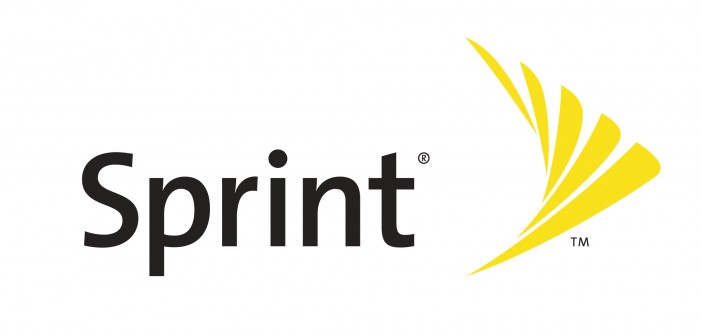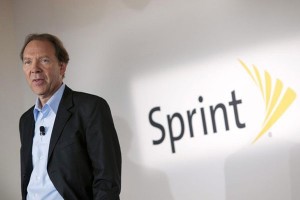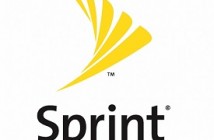As of yesterday, Sprint Corporation (NYSE: S) has announced that it will be recanting its bid to purchase T-Mobile USA (NYSE: TMUS), who is currently the fourth largest cell phone carrier in the United States.
Sprint has been trying to acquire T-Mobile for months, and has finally given up on the matter due to its losing battle against regulators, even though it had lobbied for months.
Sprint’s shares dropped 19 percent yesterday on Wednesday to $5.90. T-Mobile’s stock price decreased by 10 percent to $30.38.
 This occurrence is not a typical setback for SoftBank, the Japanese parent company of Sprint. SoftBank’s founder, Masayoshi Son, was determined to merge with T-Mobile because he saw the acquisition as a vital step in competing against the United States market leaders, AT&T Inc (NYSE: T) and Verizon Communications Inc (NYSE: VZ).
This occurrence is not a typical setback for SoftBank, the Japanese parent company of Sprint. SoftBank’s founder, Masayoshi Son, was determined to merge with T-Mobile because he saw the acquisition as a vital step in competing against the United States market leaders, AT&T Inc (NYSE: T) and Verizon Communications Inc (NYSE: VZ).
Sprint is the third largest cell phone carrier in the United States, and has concluded that a deal with T-Mobile is not likely to occur at this time. T-Mobile has also not ruled out consolidation completely. However, United States regulators have been insisting that they would like to maintain the number of major wireless carriers at its current number – four.
Sprint has already agreed in principal to a deal with Deutsche Telecom AG, which is T-Mobile’s parent company. Under the broad terms of the tentative deal, Sprint would pay $40 per share for T-Mobile.
On the other hand, Iliad only offered $33 a share for a stake of 56.6 percent in T-Mobile.
Other possible partners that would place a higher bid for T-Mobile include Cox Communications Inc, Charter Communications Inc, and Dish Networks Corp.
A SoftBank executive stated that they did not expect the opposition to their efforts to be so strong. However, they are confident that the environment will change.
What Does This Mean For Iliad
On the other hand, French telecom company Iliad had also made a rival bid for T-Mobile. Iliad’s original bid was smaller than Sprint’s offer, but now that Sprint has dropped out of the competition, the French telecommunications firm is engaging in discussions with cable companies and satellite companies in the United States to increase its offer.
Representatives from SoftBank and Sprint declined to make a statement about this recent turn of events. T-Mobile did not respond to a request for comment.
While Sprint has dropped plans to acquire T-Mobile, it has made plans to switch out its CEO. On Wednesday August 6th, the company announced that it had named Marcelo Claure as its new chief executive. The 43 years old CEO to be will take office August 11th, and will replace current executive in chief Dan Hesse, who has held the position of CEO since the year 2007.
Spring did not disclose whether or not Hesse would leave the company, or be demoted to a lesser position.
Claure joined Sprint Corporations executive board in January of 2014. He founded Brightstar Corp, a mobile phone distributer that was acquired by SoftBank. Claure completely transformed Brightstar Corp from a tiny distributer based in Miami, into a global business that brought in a gross revenue of $10.5 billion last year in 2013.
SoftBank has confirmed its intent to buy Claure’s remaining shares in Brightstar.
Claure’s salary has been set to $1.5 million per year, as well as the possibility to earn an additional $24 million through stock potions options and awards based on performance.
Sprint Has Bigger Challenges To Deal With
Sprint has reduced its operational costs, and thus has improved its earnings. However, without the T-Mobile merger in its future, its potential for growth is questionable and analysts and industry experts expect the company to struggle.
Craig Moffett, an analyst from MoffettNathanson, stated that with T-Mobile off the company’s table, investors will now shift their focus from the hype and speculation of a possible acquisition to actual valuation.
Moffett also noted that the company’s flow of cash funds will probably be nonexistent or negative for the next few years. Investors cannot ignore the possibility that the company will be forced to raise funds to support its financial situation.
Under Hesse’s leadership, Sprint completely overhauled its network infrastructure, which caused cellular sites to go down and leave coverage holes uncovered, and ultimately customer discontent and a loss of subscribers.
T-Mobile has taken the cellphone service industry by storm with its aggressive pricing policy and campaigns that advertise its no-contract plans. In the second quarter, the company posted an increased customer count and its first net profit in the entire year.






Pingback: Sprint Move Puts Pressure on T-Mobile – Wall Street Journal | Amazing News
Pingback: Sprint Move Puts Pressure on T-Mobile – Wall Street Journal | Amazing News
Pingback: Sprint, T-Mobile breakup could mean lower prices – Newsday | Amazing News
Pingback: Philip Fiore's TechnoBlog » Sprint, T-Mobile breakup could mean lower prices – Newsday
Pingback: Sprint, T-Mobile: Separate Equals Better – InformationWeek | Amazing News
Pingback: w69
Pingback: fortnite hacks
Pingback: UWIN VS LSM99 เว็บไหนที่ครองใจนักเสี่ยงโชค
Pingback: สล็อต เครดิตฟรี
Pingback: orange razz
Pingback: phim tinh cam
Pingback: betflix allstar
Pingback: 789bet
Pingback: austria weed legal
Pingback: ไฟสนามกีฬา
Pingback: Official website
Pingback: แทงบอลออนไลน์เกาหลี
Pingback: ปั้มวิว
Pingback: พิมพ์ใบปลิว
Pingback: สล็อตคิงคอง
Pingback: book of ra slot
Pingback: pinco
Pingback: Aviator slot
Pingback: รับซื้อกระเป๋าแบรนด์
Pingback: mostbet apk
Pingback: Team building กิจกรรม
Pingback: จดแจ้ง อย ออนไลน์
Pingback: ทำเงินง่ายไปกับ D88
Pingback: slotsweetbonanza.com.br
Pingback: купить трусики стринги
Pingback: บริษัทรับทำเว็บไซต์
Pingback: play at love casino with free spins
Pingback: ยางยอย
Pingback: 123bets